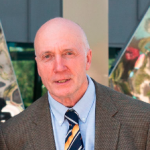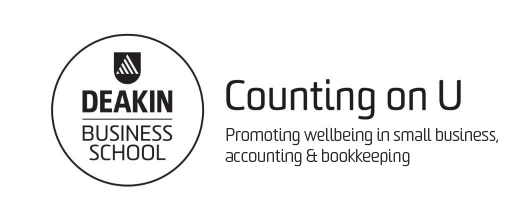Our Team
Who We Are
Our Team

Professor George Tanewski
Deakin Business School
Professor George Tanewski is director and research leader of the IPA-Deakin SME Research Centre and a Professor of Accounting in the Deakin Business School. George’s research interests include disclosure matters related to financial reporting and corporate governance with a focus on the SME ecosystem and the not-for-profit sector, the value relevance of financial reporting, and ownership structure issues associated with both public and private companies. He has published research in a number of leading academic journals including Auditing: A Journal of Practice and Theory, Abacus, The Australian Journal of Management, Pacific-Basin Finance Journal, Accounting and Finance, The Journal of Business, Finance and Accounting, The British Accounting Review, Journal of Business Venturing, Family Business Review, Journal of Small Business Management and Small Business Economics. His teaching interests are mainly in the areas of research methods, quantitative methods, financial reporting, and financial statement analysis. George is often called upon to advise policy makers on accounting standards and on issues related to private/SME firms. George has been a chief investigator on a number of externally funded research projects, including the prestigious National Health and Medical Research Council (NHMRC) grant received in December 2019 to evaluate a potentially high-impact intervention strategy to help upskill accountants to deliver mental health first aid to their small-medium enterprise (SME) clients, who are particularly vulnerable to mental health and financial stress issues.

Ms Carol Leow-Taylor
Deakin Business School
Carol is a registered psychologist with a master in Industrial/Organisational Psychology. She has over 17 years’ experience in the field working in both public and private sector organisations. Practical research work she has conducted whilst working in industry include the design, implementation, analyses and reporting of multiple employee engagement, leadership development, organisational culture, and workplace bullying surveys. During her time with Deakin Business School, she has led research and consulting projects involving integrated approaches to workplace mental health interventions. As an experienced organisational development and strategic HR professional, she has worked both as an internal specialist in organisations like Australia Post, Victorian State Department of Education & Training, ME Bank, HESTA; and as an external HR consultant at organisations like Evaluation Solutions and Right Management Consultants. She has a Project Management certification from the Australian Institute of Management, and combines lean and agile principles in managing projects. She is a Mental Health First Aid practitioner and accredited in the Mayer-Sallovey-Caruso Emotional Intelligence Test (MSCEIT).

Arla Marlow
Deakin Business School
Arla has over 20 years’ experience in business coordination/logistics, administration and operations, working across multiple SMEs in the creative art, photography, fashion and retail sectors. In her role as CoU Program Coordinator, she is responsible for stakeholder liaison (including accountant/bookkeeper professional bodies and their members, and mental health organisations), marketing and communications collateral, desktop research for CoU research and consulting activities, note-taking and transcriptions for meetings/focus groups/interviews, survey set-up and administration, thematic analysis of qualitative data, process mapping, and day-to-day coordination of the program.

Professor Andrew Noblet
Deakin Business School
Andrew Noblet is a Professor in Organisational Behaviour at Deakin Business School (Deakin University). He has established a strong track-record as a job stress and employee wellbeing researcher and has published over 60 journal papers, book chapters and commissioned research reports on these and related topics. He has also been a Chief Investigator on 17 externally funded research projects and has collaborated with a range public, private and not-for-profit organisations when undertaking this work. Much of Andrew’s recent research has focused on workplace mental health interventions, particularly those that can simultaneously address the work-based sources of health (or ill-health) while also equipping employees with the skills and knowledge to better cope within increasingly complex and challenging working environments.

Dr Sophie Bromfield
Deakin Business School
Sophie obtained a PhD in Psychology in 2020. She has a background in social and organisational psychology, having worked on research projects focusing on workplace wellbeing and influence processes in organisational contexts. She has extensive research experience and skills in mixed-methods design. Projects that she has been involved with have covered topics such as gender differences in the use of influence tactics, small business owner wellbeing, bullying and incivility interventions in workplace settings, relationship between media reports and suicidal behaviour, and stressful life events and coping in adults with autism spectrum disorders.

Dr Leanne Saxon
Deakin Business School
Dr Leanne Saxon is a senior research fellow at the Deakin University School of Business.
Leanne’s interests include improving access to physical and mental health care in developed and developing economies. With a background in public health that spans working in three continents, her work includes investigating ways Georgian refugee’s cope with their lack of access to healthcare and developing evidence-based (National Institute of Care and Excellence, NICE) guidelines for health care workers in the UK.
Leanne has published over 35 papers and has extensive experience in quantitative and qualitative research. She was recently a part of a collaboration between the Melbourne Academic Centre for Health and The Royal Melbourne Hospital, that led to her using hospital administrative data to assess the impact of COVID-19 on the delivery of health care.
With a career path that has led her back to Deakin University, she is now working with a hard-core team on an exciting public health intervention that aims to help the small-business owners (SMEs) who are struggling in response to the pandemic. She is working with business advisors to upskill them so they can better alleviate the SMEs financial burden and identify the signs of mental health problems.
If she is not on zoom or working on spreadsheets, you will find Leanne trekking across the countryside with her son and dreaming of mountains to climb abroad.
